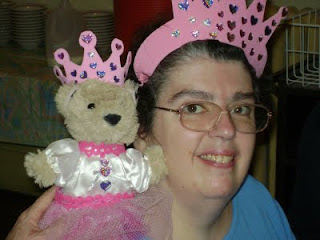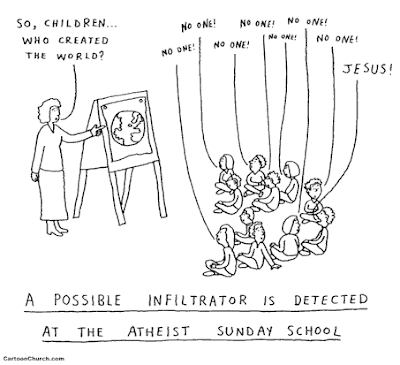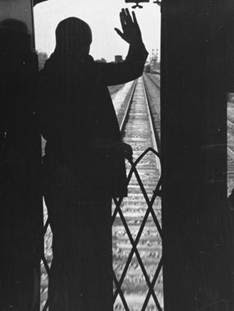 Let love be genuine; hate what is evil, hold fast to what is good; love one another with mutual affection; outdo one another in showing honor. Do not lag in zeal, be ardent in spirit, serve the Lord. Rejoice in hope, be patient in suffering, persevere in prayer. Contribute to the needs of the saints; extend hospitality to strangers.
Let love be genuine; hate what is evil, hold fast to what is good; love one another with mutual affection; outdo one another in showing honor. Do not lag in zeal, be ardent in spirit, serve the Lord. Rejoice in hope, be patient in suffering, persevere in prayer. Contribute to the needs of the saints; extend hospitality to strangers.Bless those who persecute you; bless and do not curse them. Rejoice with those who rejoice, weep with those who weep. Live in harmony with one another; do not be haughty, but associate with the lowly.
Today we stop to remember those who have died in service to our country. And, especially on this day we remember Mary, let us also pray for their mothers.
1/7
Brushaun Anderson
David Croft
Michael Jarrett
Anton Phillips
Brian Bowman
Joshua Lengstrof
John Dion
Bradley Smith
Jason Hickman
Mark Juarez
Jacob Meinhert
Nicholas Uzenski
1/20
Gifford Hurt
Jaime Lowe
Matthew Ingham
Geoffrey Whitsitt
Daniel Merriweather
Lucas Beachnaw
Kyle Wright
Christopher Hrbek
Robert Donevski
Michael Shannon
Adam Ginnett
Paul Pena
Thaddeus Montgomery
1/31
Scott Barnett
Gifford Hurt
Carlos Gill
Zachary Smith
Daniel Angus
Timothy Poole
Jeremy Kane
Xin Qi ("Gin Ki")
2/5
Scott Barnett
Zachary Lovejoy
Daniel Whitten
Michael Freeman
David Thompson
Marc Paul Decoteau
Rusty Christian
David Smith
2/13
Adriana Alvarez
Adam Ray
Dillion Foxx
David Hartman
Matthew Sluss-Tiller
Mark Stets
2/19
Sean Caughman
Alejandro Yazzie
Noah Pier
Guy Mellors
Jason Estopina
Jacob Turbet
John Reiners
Jeremiah Wittman
Bobby Pagen
2/27
William Spencer
Daniel O'Leary
Billie Grinder
Marcus Alford
Scott Barnett
Marcos Gorra
Matthais Hanson
Eric Ward
Adam Peak
J.R. Salvacion
Christopher Eckard
Michael Cardenaz
Gregory Stultz
Joshua Birchfield
Kielin Dunn
Jeremy McQuery
Kyle Coutu
Larry Johnson
3/5
Nigel Olsen
Vincent Owens
Carlos Aragon
Ian Gelig
Matthew Huston
Josiah Crumpler
William Ricketts
3/13
Aaron Arthur
Lakeshia Bailey
Garrett Gamble
Jason Kropat
Jonathan Richardson
Nicholas Cook
Alan Dikcis
Anthony Paci
3/19
Richard Jordan
Erin McLyman
Steven Bishop
Adam Brown
Robert Gilbert II
Glen Whetten
Jonathan Porto
3/28
Robert Rieckhoff
Rick Centanni
Robert Cottle
Justin Wilson
Carlos Santos-Silva
Joel Clarkson
4/3
Raymond Pacleb
Frank World
James Miller
Randy Heck
Jacob Ross
4/10
Robert Collins
Anthony Blount
Kurt Kruize
Roberto Diaz Borio
James Lackey
Randall Voas
Curtis Swenson
Michael Sweeney
4/17
Joseph Caron
Sean Durkin
Michael Jankiewicz
Jonathan Hall
4/24
Charlie Antonio
James Patton
John LaBorde
Robert Barrett
Randolph Sigley
Michael Ingram
5/1
Keith Coe
Christopher Worrell
Thomas Rivers
Nathan Kennedy
Grant Wichmann
Ronald Kubik
Jason Santora
5/8
Ralph Mena
Anthony Magee
Wade Slack
Richard Penny
Brandon Barrett
Austin Benson
Harvey Holmes
Mark Coleman
Eric Finniginam
Salvatore Corma
5/15
Essau Gonzales
Dennis Kisseloff
Joshua Desforges
Donald Lamar II
Jeffrey Johnson
Kenneth May Jr.
Kurt Shea
Jeremy Brown
Kyle Comfort
Joshua Davis
5/22
Shane Barnard
Patrick Xavier Jr.
Joshua Tomlinson
Richard Tieman
Thomas Belkofer
Paul Bartz
John McHugh
Nicholas Paradarodriguez
Billy Anderson
Adam Perkins
Zarian Wood
5/28
Roger Culver
Amilcar Gonzales
Stanley Sokolowski
Edwin Rivera
Christopher Barton
Jason Fingar
Following World War I, the dead of all wars were included in Memorial Day. The calamity of World War I was without parallel in world history; no war had ever claimed so many lives globally. There came a growing awareness that the dead of that war -- and every war -- should never be forgotten.






















